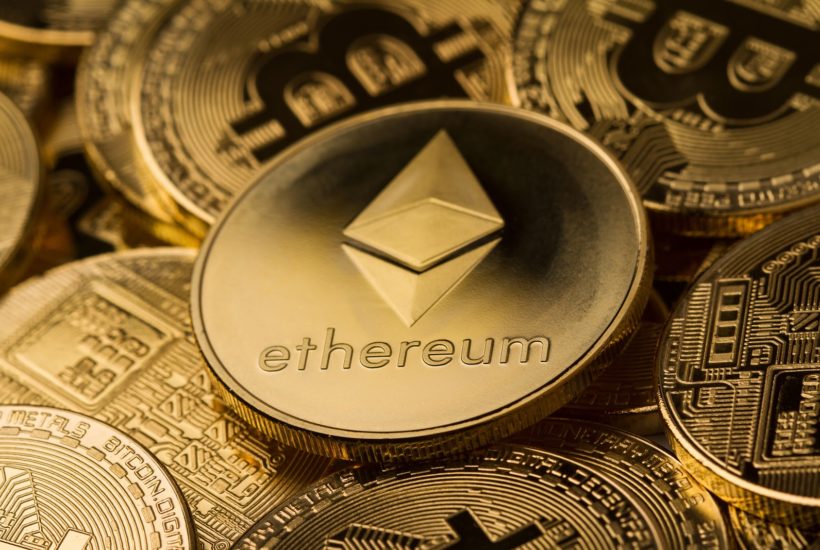Crypto
Why are Ethereum fees higher than Bitcoin ones?
The fees on the Ethereum network have been way higher than the ones on the Bitcoin network. For two months, the blockchain fees investors and users had to pay when transitioning ETH were on average $14, between August and September. Now, the fees are at $2. Especially the use and hype around Decentralized Finance (DeFi) has pushed the Ethereum network to its limits.

The Ethereum network has now had higher average transaction fees than the Bitcoin network for 2 months. The blockchain fees are one of the biggest challenges. Ethereum users and investors are wondering when the solution will come? – Among other things, this involves an improvement proposal called EIP-1559.
If you want to find more details about the Ethereum transaction fees and why they were so high, download for free the Born2Invest mobile app. Our companion app brings you the latest finance news for you to stay informed.
DeFi and the Ethereum fees
Especially the use and hype around Decentralized Finance (DeFi) has pushed the Ethereum network to its limits. Countless transactions have led to the fact that not only transactions themselves were carried out slowly, but above all, they also had high fees.
A recent tweet from the analysis company Messari on October 8th showed that the longest period of time has now been reached where Ethereum fees are higher than Bitcoin fees.
”Ethereum fees have been higher than Bitcoin fees for 2 months straight. It’s longest streak ever.”
Especially in August, at the absolute high of DeFi, the Ethereum fees reached their all-time high. Due to the cooling off from the DeFi market, however, the situation has calmed down considerably to this day.
In absolute terms, this means that the Ethereum fees are currently around $2, while the average fee in August-September was around $14.
EIP-1559 and the question of a solution
Ethereum 2.0: This buzzword has been circulating in the crypto space for several months and years now. It refers to the final solution of the scaling debate and problems of Ethereum. However, until this is actually implemented, another 2 years will probably pass.
Therefore the question arises how to find a good interim solution. In other words: Are there ways to solve the problems with the fees quickly and satisfactorily?
Last week, ConsenSys developer Tim Beiko published the findings of a survey on Ethereum Improvement Proposal 1559.
At the core of this EIP is the idea of implementing a fixed network fee per block and additionally using a “tip” for miners. A part of the fees would again be burned depending on the congestion level of the blockchain.
The survey showed that the majority (60%) supports the project. The remaining 40% are divided into 27% who have a neutral opinion and 13% who reject the project. Logically, it is especially the miners who are critical of the EIP-1559.
DeFi Space suffers a severe slump
Decentralized Finance (DeFi) continues to struggle with declines and losses. After the sharp rise in recent months, the overheated market is gradually discharging. The analysis company Santiment found that on Wednesday the day before yesterday alone, the market capitalization of all DeFi tokens collapsed by 25%.
In a blog post published on October 8th, analyst company Santiment estimated that the daily trading volume of all DeFi tokens has decreased by 30% in the past 7 days. The big market leaders such as Uniswap (UNI), Yearn Finance (YFI) or Compound (COMP) are particularly hard hit.
__
(Featured image by macondoso via envatoelements)
DISCLAIMER: This article was written by a third party contributor and does not reflect the opinion of Born2Invest, its management, staff or its associates. Please review our disclaimer for more information.
This article may include forward-looking statements. These forward-looking statements generally are identified by the words “believe,” “project,” “estimate,” “become,” “plan,” “will,” and similar expressions. These forward-looking statements involve known and unknown risks as well as uncertainties, including those discussed in the following cautionary statements and elsewhere in this article and on this site. Although the Company may believe that its expectations are based on reasonable assumptions, the actual results that the Company may achieve may differ materially from any forward-looking statements, which reflect the opinions of the management of the Company only as of the date hereof. Additionally, please make sure to read these important disclosures.
First published in CRYPTO MONDAY, a third-party contributor translated and adapted the article from the original. In case of discrepancy, the original will prevail.
Although we made reasonable efforts to provide accurate translations, some parts may be incorrect. Born2Invest assumes no responsibility for errors, omissions or ambiguities in the translations provided on this website. Any person or entity relying on translated content does so at their own risk. Born2Invest is not responsible for losses caused by such reliance on the accuracy or reliability of translated information. If you wish to report an error or inaccuracy in the translation, we encourage you to contact us.

-

 Cannabis5 days ago
Cannabis5 days agoCannabis and the Aging Brain: New Research Challenges Old Assumptions
-

 Africa2 weeks ago
Africa2 weeks agoUnemployment in Moroco Falls in 2025, but Underemployment and Youth Joblessness Rise
-

 Crowdfunding3 days ago
Crowdfunding3 days agoAWOL Vision’s Aetherion Projectors Raise Millions on Kickstarter
-

 Fintech1 week ago
Fintech1 week agoFintower Secures €1.5M Seed Funding to Transform Financial Planning

























